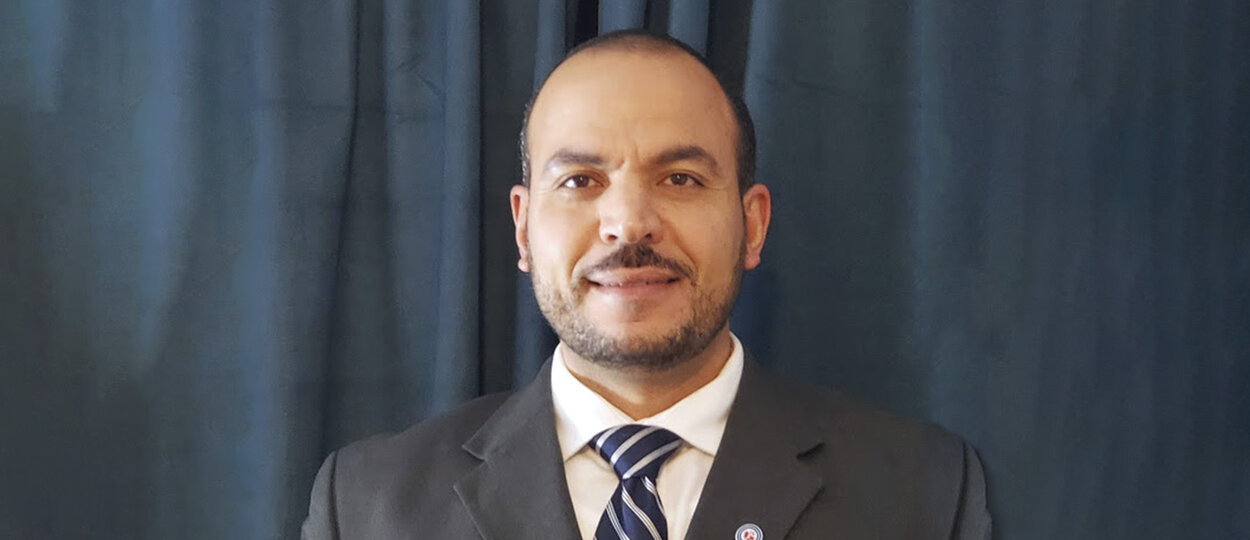Throughout his career in pharmacy, Ali Elbeddini has focused on acquiring new skills. Even as an experienced pharmacist, he always looks for new opportunities that will improve his practice and contribute to research and innovation.
Elbeddini, originally from Egypt, says that he has always been interested in how drugs work in the body, particularly the differences between young and older patients. “I would always think about what happens when you take a medication – how does it cure a disease, what does it do to your body?” he says. “That curiosity was the spark that drove me to pharmacy. I always liked the mystery and the science around it.”
He studied pharmacy at the University of Mansoura in Egypt and subsequently worked as a community pharmacist until he landed a role in sales with a world-leading biopharmaceutical company. This exposure expanded his interest in looking for international education opportunities. When he moved to Canada in 2004, he decided on the Leslie Dan Faculty of Pharmacy’s International Pharmacy Graduate (IPG) program.
“I loved speaking with my patients face to face, providing counseling and empowering them to improve their health and quality of care”
He graduated from the IPG program in 2008, passed the licensing exam to practice in Ontario the following year, and began working as a pharmacy manager in various community pharmacies. “I loved speaking with my patients face to face, providing counseling and empowering them to improve their health and quality of care,” he says.
Now working as the managing director of the clinical pharmacy at Winchester District Memorial Hospital (WDMH), a teaching hospital south of Ottawa, he is also able to pursue research related to his area of interest – medication use in the older adult population.
During his clinical work, Elbeddini found that many patients were taking high numbers of drugs, sometimes dozens of different medications, which can lead to complications including dementia and memory loss. He works closely with the hospital’s memory clinic, and he leads a deprescribing team that helps patients gradually stop taking unnecessary medications.
The deprescribing team has been immensely successful, seeing significant memory and cognitive improvement in their patients. “Three people came back and thanked us for saving their lives,” he says. “They said the deprescribing approach made them feel empowered and safe.”
Elbeddini is also involved in training the next generation of pharmacists, supervising students from U of T’s PharmD and Early Practice Experience (EPE-2) programs, as well as serving as an examiner/assessor with the Pharmacy Examining Board of Canada.
Years after graduating, Elbeddini says that the IPG program’s emphasis on the need to put patients first and provide them with simple, easy-to-understand information has stayed with him, and he uses this approach every day. “It doesn’t matter how many publications or credentials you have. You have to deliver an understandable message to your patients, address their concerns,and break down medical jargon. That’s what makes a difference in their life,” he says. “Without that, you can’t be a good pharmacist.”
More News
Image

Dean Lisa Dolovich reappointed for second term
Professor Lisa Dolovich has been reappointed for a second term as Dean of the Leslie Dan Faculty of Pharmacy, University of Toronto, effective July 1, 2025, to December 30, 2030.
Read More
Image

Pharmacy Summer Camp gives high school students insight into pharmacy profession
A new summer camp based at the faculty will give high school students a range of experiences in pharmacy and pharmaceutical sciences.
Read More
Image

Team GloveLift wins 2025 Business Plan Competition with innovative medical device
PharmD students win $5,000 prize for their innovative medical device concept aimed at improving patient care.
Read More
